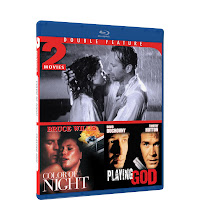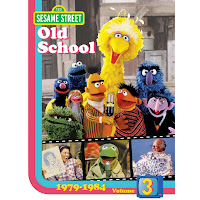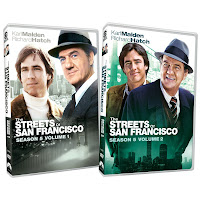the traveler's resource guide to festivals & films
a FestivalTravelNetwork.com site
part of Insider Media llc.
Reviews
NYC Theater Roundup: ‘Annie’ Returns to Broadway, ‘Sorry’ Off-Broadway
- Details
- Parent Category: Film and the Arts
- Category: Reviews
- Published on Wednesday, 14 November 2012 20:00
- Written by Kevin Filipski
Annie
Book by Thomas Meehan; music by Charles Strouse; lyrics by Martin Charnin
Directed by James Lapine; choreographed by Andy Blankenbuehler
Performances through March 31, 2013
Sorry
Written and directed by Richard Nelson
Performances through November 25, 2012
If one musical is the poster girl for old-fashioned Broadway, it’s Annie, a huge hit back in 1977 and now better known to people who’ve never seen the show for “Tomorrow” and “It’s a Hard Knock Life”: the latter sampled by Jay Z for his 1998 hit “Hard Knock Life (Ghetto Anthem).”
Annie, a huge hit back in 1977 and now better known to people who’ve never seen the show for “Tomorrow” and “It’s a Hard Knock Life”: the latter sampled by Jay Z for his 1998 hit “Hard Knock Life (Ghetto Anthem).”
Although John Huston’s 1982 movie version was a financial and artistic disaster, Annie remains, in its unpretentious way, one of our most charming family-friendly musicals. In James Lapine’s new Broadway staging—which tries too hard at times to bring a contemporary edge to its essentially sweet story of the little orphaned red-head and the billionaire she guilelessly tames—the whole is greater than the sum of its parts, as sentiment trumps cynicism.
Lapine doesn’t hammer home parallels between the show’s Depression era that separates haves from have nots—with a hard-working Democratic president, FDR, trying to close the gap—and a similar situation obtaining today. Instead, he smartly concentrates on the relationship between Annie and Daddy Warbucks, brought to life in spot-on performances by newcomer Lilla Crawford, with her booming voice and refreshing uncutesy stage manner, and Australian Anthony Warlow, whose Warbucks is less a caricatured Koch brother than a lonely man who hopes that money can buy him love.
The supporting cast is led by an adorable mutt named Sunny as Annie’s beloved stray dog Sandy. A formidable troupe of young girls includes the criminally cute Emily Rosenfeld, who even outpaces her talented fellow orphans. Too bad that Katie Finneran provides another unimpressively blustery performance as Miss Hannigan, the hated head of the orphanage. In this usually foolproof comic role, Finneran gives it her all, which, as always, is both too much and not enough.
While Andy Blankenbuehler’s choreography is merely serviceable—and at its best when the orphans are front and center—David Korins’ silhouetted sets of New York buildings and bridges and storybook recreation of Warbucks’ gilded mansion are inspired. Charles Strouse’s music, one of the last Broadway scores crammed with miraculously tuneful melodies, contains songs that are not merely hummable gems but are at the service of the story: their greatness lies in their utter simplicity, just like Annie.
 Richard Nelson, in his plays about the Apple family—That Hopey Changey Thing, Sweet and Sad and now Sorry—has done the near-impossible for an American playwright. He writes about political matters without separating them from personal ones; in fact, he integrates them so well that we never feel we’re being preached or condescended to: in fact, these conversational plays make us feel we’re simply in the company of a family having uncommonly intelligent discussions at—in the case of Sorry—the breakfast table.
Richard Nelson, in his plays about the Apple family—That Hopey Changey Thing, Sweet and Sad and now Sorry—has done the near-impossible for an American playwright. He writes about political matters without separating them from personal ones; in fact, he integrates them so well that we never feel we’re being preached or condescended to: in fact, these conversational plays make us feel we’re simply in the company of a family having uncommonly intelligent discussions at—in the case of Sorry—the breakfast table.
The Apples—sisters Barbara, Marian and Jane, and brother Richard—are together on Election Day 2012 to do two things: talk about what’s transpired in our country since Election Day 2010 (when Hopey Changey was set), notably how disappointing—if still hopeful—President Obama’s first term has been; and decide whether their beloved uncle Benjamin, suffering from the first stages of Alzheimer’s, should be taken to a nearby rest home, since it’s too difficult for Barbara and Marian to take care of him at home.
Nelson’s dialogue is pointed and poignant; after three of these plays, we have really gotten to know the Apples, and can shed tears or laugh along with their conversations about the state of our nation, the state of New York—Nelson’s script is up to date, mentioning the effects of Hurricane Sandy alongside our endless election cycle—and the state of their family.
Nelson’s smart, simple direction lets his five peerless performers—a sixth character, Jane’s boyfriend Tim, is off doing a play in Chicago (actor Shuler Hensley is actually starring in another off-Broadway play and was unavailable—he’s supposed to return for Nelson’s final Apple play)—shine in their compelling naturalness. Jay O. Sanders (Richard), Maryann Plunkett (Barbara), Laila Robins (Marian), J. Smith-Cameron (Jane) and Jon Devries (Benjamin) are so in tune with one another that it’s unfair to single out anyone: they combine for a remarkable ensemble performance as the Apple family.
If Richard Nelson wants to keep checking in on them indefinitely, I’ll go along for the ride.
Annie
Palace Theatre, 1564 Broadway, New York, NY
Sorry
The Public Theater, 425 Lafayette Street, New York, NY
November '12 Digital Week II
- Details
- Parent Category: Film and the Arts
- Category: Reviews
- Published on Monday, 12 November 2012 10:00
- Written by Kevin Filipski
German composer Hans Werner Henze—who died recently at age 86—mastered many orchestral genres, from symphonies, ballets and operas to, as this superlative new disc makes clear, chamber music. The works here are highlighted by settings of Friedrich Holderlin's poems, Kammermusik 1958, which alternates aching instrumental interludes for string ensemble or guitar with vocal passages of unrivaled beauty sung by tenor Clemens C. Loschmann with tact and precision.
The shorter works—1948’s Apollo et Hyazinthus and 1982’s Canzona—also demonstrate Henze’s unique musical idiom that combines gorgeous Romanticism with unapologetic modernism.
November '12 Digital Week I
- Details
- Parent Category: Film and the Arts
- Category: Reviews
- Published on Monday, 05 November 2012 05:00
- Written by Kevin Filipski
CD Reviews: Great Vocal Stars Complied on New Releases
- Details
- Parent Category: Film and the Arts
- Category: Reviews
- Published on Sunday, 04 November 2012 14:03
- Written by Lloyd Carroll
 Art Garfunkel
Art Garfunkel
The Singer
(Columbia/Legacy)
Art Garfunkel and I have two things in common. We’re both alums of Forest Hills High School and we got our undergraduate degrees at Columbia University. Of course, he can sing a lot better that I. My ego can accept that because his ethereal voice is one of the best that has ever graced a recording. It’s not hubris that this just-released, 34-song, two CD Garfunkel career retrospective is titled The Singer.
You can’t think of Art without thinking about his childhood buddy from Kew Garden Hills and on and off again performing partner, Paul Simon.
While Artie has had a far longer career as a solo artist than he did as half of Simon & Garfunkel, there are plenty of original S&G tunes here including the well-known “Sound of Silence,” “Scarborough Fair” and “Bridge Over Troubled Water,” as well as more obscure tracks as “For Emily, Wherever I May Find Her,” “Kathy’s Song,” “So Long, Frank Lloyd Wright” and April Come, She Will.”
Regrettably the dour 1975 hit, “My Little Town,” in which Paul Simon painted Queens as a dreary place populated by people with small minds is included here as well.
Few vocalists can consistently hit the upper octaves of the treble clef without breaking into falsetto. Garfunkel has always managed to pull it off as evidenced by “Breakaway,” “A Heart in New York,” and “99 Miles from LA” -- a song co-written by Hal David who passed away this past September at the age of 91.
It’s somewhat ironic that Artie chose to omit his three biggest solo hits, the overly dramatic “For All I Know,” the lighthearted “I Shall Sing,” and the heartbreaking “Second Avenue.” He did include a samba version of “Some Enchanted Evening.” While it is pleasant to listen to, it can’t hold a candle to the definitive Jay & the Americans’ 1965 hit rendition which truly brought the South Pacific standard to life and to a younger audience.
The Beach BoysFifty Big Ones
(Capitol)
One of the happier concert stories this past summer was the Beach Boys’ 50th anniversary tour in which the surviving key members, Brian Wilson, Mike Love, Al Jardine, Bruce Johnston and David Marks, proved that age is no barrier to rock & roll. The guys sounded great and were on stage for well over two hours nightly, something most younger bands can’t even endure.
Fifty Big Ones is a clever play on the title of the 1976 Beach Boys album 15 Big Ones in which the guys celebrated their 15th anniversary with both original tunes and covers of their favorite rock songs. Carl Wilson’s vocal take on the Righteous Brothers’ “Just Once in My Life” was worth the price of the LP alone.
If you’ve been looking for the definitive Beach Boys’ greatest hits album, wait no longer. Name a Beach Boys hit and it’s here on this two-disc, 50-song compilation.
Two songs recorded in 1965, “Please Let Me Wonder,” the best song ever written about having a crush on someone, and “Kiss Me, Baby” a tune about the pain of having a blowout argument with your girlfriend and hoping to make up ASAP, finally take their rightful place on a Beach Boys “best of” album alongside “Fun, Fun, Fun,” “California Girls,” “Good Vibrations,” I Get Around,” “Wouldn’t It Be Nice” and the like.
This year’s Beach Boys comeback tune, “That’s Why God Made The Radio,” is here as well. Regrettably their terrific 1986 cover of the Mamas & Papas’ “California Dreaming,” which received substantial airplay on both radio and MTV back in the day, is not here.
Donny Hathaway
Live +In Performance
(Shout Factory)
Much as George “Superman” Reeves’ death in 1959 has remained a mystery all these years, so has rhythm & blues singer Donny Hathaway’s fall from his hotel room at the Essex House in 1979.
Hathaway was best known to pop music fans for a pair of hit duets with Roberta Flack -- 1972’s “Where Is The Love?” and 1978's romantic “The Closer I Get To You.”
While he never achieved the chart success as a solo artist that he did as a singing partner with Ms. Flack, Hathaway was idolized by such legends as Stevie Wonder and Marvin Gaye for both his expressive vocalizing and composing abilities.
This twin-disc live album of Hathaway performing his interpretations of Carole King’s “You’ve Got A Friend,” Marvin Gaye’s “What’s Going On,” Leon Russell’s “A Song For You,” and “I’ll Love You More Than You’ll Ever Know” written by Blood, Sweat & Tears’ founding member Al Kooper combined with his own songs, “The Ghetto” and “We Need You Right Now,” shows why he was lionized and still very much missed.
More Articles...
Newsletter Sign Up






































